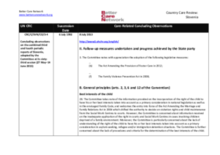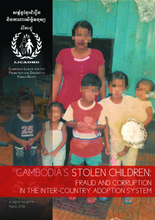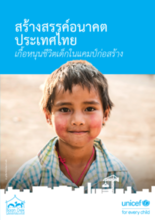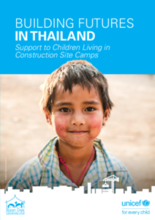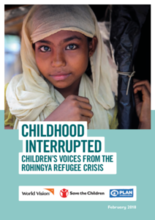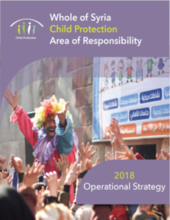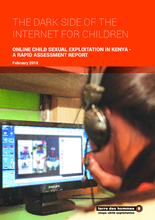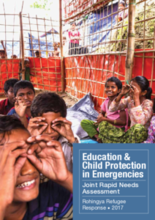Displaying 191 - 200 of 469
This Country Care Review includes the care-related concluding observations adopted by the Committee on the Rights of the Child and the Committee on the Rights of Persons with Disabilities, as well as other care-related concluding observations, ratification dates, and links to the Universal Periodic Review and Hague Intercountry Adoption Country Profile.
This report from the Cambodian League for the Promotion and Defense of Human Rights (LICADHO) presents the stories of three Cambodian women whose children had been adopted overseas at different times over the last 15 years and exposes corrupt and fraudulent practices in Cambodia's Inter-country adoption system.
This report is based on in-depth interviews with migrant children and parents, real estate and construction companies, government Ministries, and NGOs. It explores the challenges faced by children living in construction site camps, and suggests solutions that can be scaled to foster social responsibility within Thailand’s construction sector.
This report is based on in-depth interviews with migrant children and parents, real estate and construction companies, government Ministries, and NGOs. It explores the challenges faced by children living in construction site camps, and suggests solutions that can be scaled to foster social responsibility within Thailand’s construction sector.
The present study explores sexual abuse and exploitation of unaccompanied migrant children in Greece, and the risk factors associated with their occurrence.
This report presents the results of a consultation - organised by Plan International, Save the Children and World Vision International - which surveyed children in Cox’s Bazar, Bangladesh from refugee communities (who identify themselves as Rohingya) and children from host communities.
This report from the Child Protection Area of Responsibility (CP AoR) highlights the child protection needs and responses in Syria and includes objectives and targets for continued child protection interventions and strategies.
Terre des Hommes Netherlands has conducted this preliminary study to examine if there is evidence of Online Child Sexual Exploitation (OCSE) in Kenya.
The main objective of this Joint Rapid Education and Child Protection Need Assessment (JRNA) was to identify education and child protection needs, priorities and capacities of Rohingya boys and girls in the camps, settlements and host community in Cox’s Bazar, Bangladesh to inform and provide the evidence-base for the 2018 Joint Response Plan (JRP).
This article from Children's Legal Rights Journal discusses the statistics and data regarding foster youth who are commercially exploited for sex, and examines the various reasons why foster care children represent such a large proportion of the victims.

